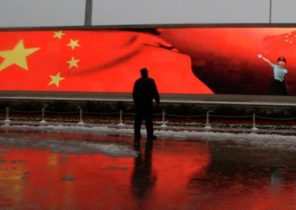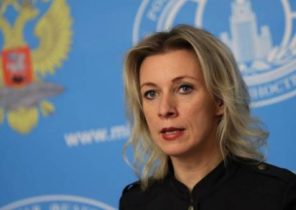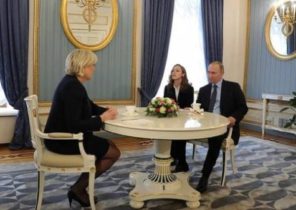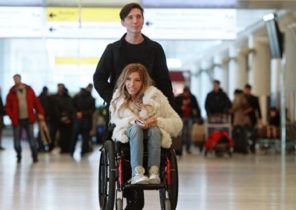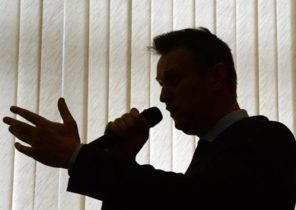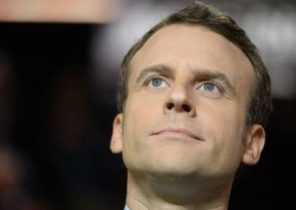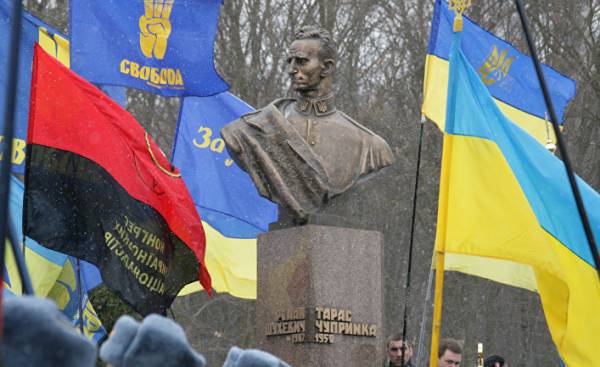
For many people in Ukraine Roman Shukhevych a national hero primarily because he fought against the red Army. Offer to call his name one of the main streets of Kiev, caused controversy.
General Roman Shukhevych today many in Ukraine believe the hero and the dramatic figure in the recent history of the country with which they themselves identificeret. This born in 1907, the leader of the partisan movement in 1943 was the commander of the Ukrainian insurgent army (the UPA — an organization banned in Russia — approx.ed.) the military wing of the nationalist underground. His main enemy was primarily the Soviet Union.
When in 1950, Shukhevych was surrounded in the Ukraine, Soviet special forces, he committed suicide to avoid capture. The Soviet authorities have harassed the family Shukhevych at a time when he was in hiding, and carried on its members the responsibility for his actions, the minor children were placed in children’s home, and his wife were exiled to Siberia. His son George, who is now 84 years old, has spent more than 30 years in the camp and in exile. His eyes can’t see, but in General he is cheerful and is now in the Kiev Parliament, the populist “Radical party”.
But there is another, earlier Chapter in the life of the commander Shukhevych, which today is controversial and protests — we are talking about his role in the period when he was the commander of the battalion “Nachtigall” — in 1941, during the German attack on the Soviet Union. However, the government of the city of Kiev made the decision on what to call the name of Shukhevych major street in the city. This decision is also politically motivated, since until recently this desyatiballnoy trunk bore the name of Nikolai Vatutin. This General commanded the 1st Ukrainian front of the red Army, which in 1943 regained control of the city. In 1944, Vatutin was killed in an attack by partisans of the UPA.
This week the Kyiv administrative court suspended the implementation of this controversial decision. The court forbade the signing and publication of administrative orders before the end of the proceedings. The plaintiffs (one “anti-fascist” and one Jewish organization) perceive this as a victory and say, “This means that the mayor of the city Vitali Klitschko won’t sign the decision on renaming”.
Shukhevych, as an engineer, worked before the war in the Western part of Poland. In Galicia and Volhynia at the time lived about four million Ukrainians, and they were the largest ethnic minority in Poland. In the struggle against the Polish state, Ukrainians are increasingly resorted to the tactics of terror, which provoked counter-violence by the police. Shukhevych was also involved in assassination attempts on Polish politicians and other persons, and for this he was sentenced to a prison term. Even the Weimar Republic tried to establish contact with the Ukrainians, in which it saw political allies in the struggle against the Polish Republic. Therefore, already at that time in Germany were held by secret training of Ukrainian nationalists. The national socialists made these contacts more intense. The peak they reached in 1941, before and during the attack the Third Reich on the Soviet Union.
At that time under the control of the head of the Abwehr, Admiral Wilhelm Canaris was formed battalions “Nachtigall” and “Roland”. Each of them consisted of hundreds of Ukrainians, as Shukhevych was appointed one of the commanders. The functions of the liaison officer and expert in the battalion “Nachtigall” was performed by the German Theodor Oberlander (Theodor Oberländer). Later, when Federal Chancellor Adenauer, Oberlander was a Minister banished, and this post he held until until arranged in the GDR, the show trial forced him to retire. No doubt that, in addition to the German forces, Ukrainian nationalists participated in the massacres — first of all, their victims were representatives of the Jewish population in Lemberg and the surrounding area. Until today it remains unclear what the participation of Shukhevych and his unit participated in these actions. Collaborating with the Third Reich, Ukrainian nationalists hoped that they will soon get their own state. Therefore, they, and especially their civil leader Stepan Bandera, after the capture of Lemberg (Lvov) called for the creation of an independent Ukraine.
This, of course, did not meet the goals of the national socialist government. Therefore, the battalions “Nachtigall” and “Roland” were withdrawn, disarmed, and their members were interned. Later, many of these soldiers became part of a private police force. Shukhevych and some other nationalists managed to escape, after which the activities of the UPA continued underground.
For advocates of the GDR proved to be very successful is that Oberlander was able to make a career in the Federal Republic — thus, they could say that Germany is a “continuation of fascism”. When today we honor Shukhevych, the Russian media sound similar charges. They fit perfectly into allegations of Moscow that in Ukraine after the overthrow of the corrupt President Yanukovych active “fascists”.
Due to the ongoing Russian-Ukrainian conflict in Eastern Ukraine, and also due to the Russian annexation of the Crimea debate about Shukhevych even in Ukraine virtually impossible. The historian Vladimir vyatrovich, head of the state Institute of national memory, engaged in a critical rethinking of contemporary history and analysis of documents of the KGB, made a purely political comment about the dispute. “Roman Shukhevych — the most prominent historical figure of the 20th century, he is anti-Soviet character”.
According to him, called his name one of the streets in the capital means to carry out “the almost complete break with the Soviet past”. The population need such symbols in order to mobilize against modern Russia,” — he stressed.
